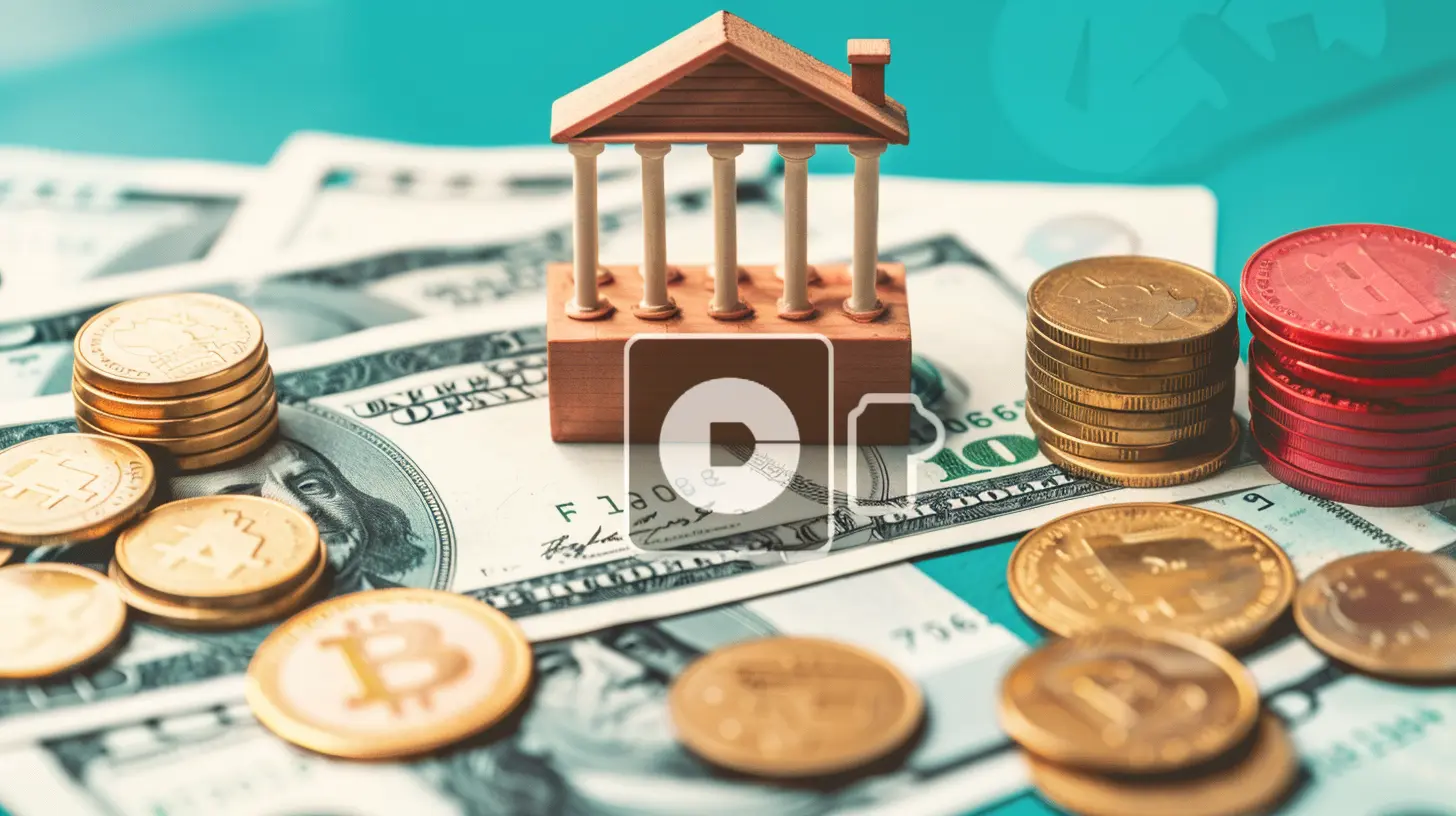13 December 2024
When it comes to managing debt or finding ways to lower your monthly payments, you’ve probably come across two popular terms: debt consolidation and refinancing. While they sound pretty similar, they’re definitely not the same thing. And if you’re feeling a little lost trying to figure out which option might be best for your financial situation, don’t worry—you’re not alone.
In this article, we’re going to break everything down for you. We’ll explore what debt consolidation and refinancing actually mean, how they work, their differences, and when you might want to choose one over the other. By the time you’re done reading, you’ll feel like a pro. Ready to dive in? Let’s get started!
What Is Debt Consolidation?
Think of debt consolidation as putting all your messy debt into one tidy package—it’s like cleaning up that junk drawer in your kitchen. Essentially, debt consolidation is when you combine multiple debts (like credit cards, personal loans, medical bills, etc.) into a single loan or payment. The goal? Simplify your life by rolling it all into one payment, ideally with a lower interest rate.Here’s how it works: Let’s say you’ve accumulated debt from three credit cards and each one has a different interest rate. Instead of juggling three separate payments, you take out a new loan to pay them off. Now, you’re left with just one loan to focus on.
Why Do People Consolidate Debt?
Debt consolidation appeals to a lot of people for a few reasons:1. Simplified Payments: Managing one monthly payment is way easier than handling multiple bills with different due dates.
2. Lower Interest Rates: If your consolidation loan has a lower interest rate than what you were paying on your debts, you could save money in the long run. (Who doesn’t love saving money?)
3. Debt-Free Timeline: Some people find it easier to stay on track with a structured repayment plan.
What About Refinancing?
Now, refinancing is a little different—it’s like upgrading your current setup without necessarily combining anything. Refinancing is when you replace an existing loan with a new one, often with better terms.For example, let’s say you have a mortgage with a 6% interest rate, but now the market offers 4%. You could refinance by taking out a new loan at that lower interest rate and use it to pay off the original loan. Boom! You’re saving money every month.
Why Do People Refinance?
Refinancing is a go-to move for people looking to improve their loan terms. Here’s why:1. Lower Interest Rates: This is the big one. Nobody wants to pay more interest than they have to, right?
2. Shorter Loan Term: Want to pay off your loan faster? Refinancing can help you shave off years from your term.
3. Reduce Monthly Payments: If you’re tight on cash, refinancing might help lower your payments by stretching out your loan term (though this could mean paying more interest overall).
4. Tap Into Equity: For homeowners, refinancing can sometimes free up cash by letting you borrow against your home equity.
Debt Consolidation vs. Refinancing: The Key Differences
Alright, now that we’ve got the basics down, let’s dig into the differences. Spoiler alert: debt consolidation and refinancing aren’t interchangeable—they’re designed for different scenarios.| Aspect | Debt Consolidation | Refinancing |
|---------------------------|----------------------------------------------------------------------------------------|-----------------------------------------------------------------------------|
| Purpose | Combine multiple debts into one | Replace an existing loan with a new one |
| Number of Loans | Typically involves combining multiple loans | Focuses on one loan |
| Interest Rate | Aims to secure a lower interest rate on all debts | Aims to secure a better rate/term for a single loan |
| Loan Type | New loan, often unsecured (like a personal loan) | Can be a mortgage, auto loan, student loan, etc. |
| Primary Benefit | Simplified payments and potential savings on interest | Lower interest rates, better terms, or reduced monthly payments |
| Common Use | Credit cards, personal loans, medical bills | Mortgages, auto loans, or any single loan with unfavorable terms |
Pros and Cons of Each Option
Let’s dive into the nitty-gritty. Both debt consolidation and refinancing have their benefits, but they’re not perfect. Here’s what you need to weigh:Debt Consolidation
Pros:- Simplifies your finances—say goodbye to juggling multiple bills!
- Could lower your interest rate, especially if you’ve been paying high credit card APRs.
- Might help you pay off debt faster with a structured plan.
Cons:
- Doesn’t work unless you’re disciplined with spending (i.e., don’t rack up more credit card debt after consolidating).
- You might need good credit to qualify for the best rates.
- Some consolidation loans have fees or higher overall costs.
Refinancing
Pros:- Could save you tons of money on interest, especially for big loans like mortgages.
- Offers flexibility in terms of payment length or monthly payment size.
- Allows you to adjust the loan to better fit your financial goals.
Cons:
- Refinancing doesn’t work for everyone—market rates and your credit score matter.
- The process can involve fees, like appraisal costs and closing costs for mortgage refinancing.
- Extending the loan term could mean paying more interest over time.
When Should You Consider Debt Consolidation?
So, how do you know if debt consolidation is your best bet? Here are a few situations where it makes sense:- You’re drowning in high-interest credit card debt.
- Managing multiple payments feels overwhelming.
- You’re confident you can avoid racking up more debt after consolidating.
Debt consolidation is all about simplifying and saving, but it requires some financial discipline. Think of it like hitting the reset button—you have to commit to staying on a better path.
When Should You Consider Refinancing?
Refinancing is ideal when:- You currently have a loan with a high interest rate and better rates are available.
- You want to adjust your loan term (shorten it to pay off faster or extend it to reduce monthly payments).
- You’re looking to tap into home equity or improve your mortgage terms.
The bottom line? Refinancing is a smart choice when the math works in your favor. Always crunch the numbers first and consider the closing costs or fees involved!
Which Option Is Right for You?
Here’s the thing—there’s no one-size-fits-all answer. The right choice depends on your financial goals and what kind of debt you’re dealing with.- If you’ve got multiple debts and you’re dreaming of simple, streamlined payments, debt consolidation might be your savior.
- If you’re looking to improve the terms of a single loan or save on interest, refinancing is probably your best bet.
And here’s a pro tip: always take the time to evaluate your credit score, current interest rates, and fees before making a decision. If you’re unsure, consider reaching out to a financial advisor—they’re like the GPS for your financial journey.
Final Thoughts
Debt consolidation and refinancing are like two sides of the same coin—they’re tools designed to make your financial life a little easier. But, like any financial decision, they come with their own pros and cons.The key is to figure out which one aligns with your goals. Do you want to simplify your debt payments? Go for debt consolidation. Hoping to get a better deal on an existing loan? Refinancing might be the way to go.
No matter which path you choose, the most important step is to stay proactive. Taking control of your debt is a huge step toward financial freedom, so give yourself a pat on the back for tackling it head-on!











Soleil Duke
Debt consolidation combines multiple debts into a single loan, often simplifying payments and reducing interest rates. In contrast, refinancing replaces an existing loan with a new one, typically to lower payments or adjust loan terms. Understanding both options can enhance financial strategy.
February 3, 2025 at 1:59 PM